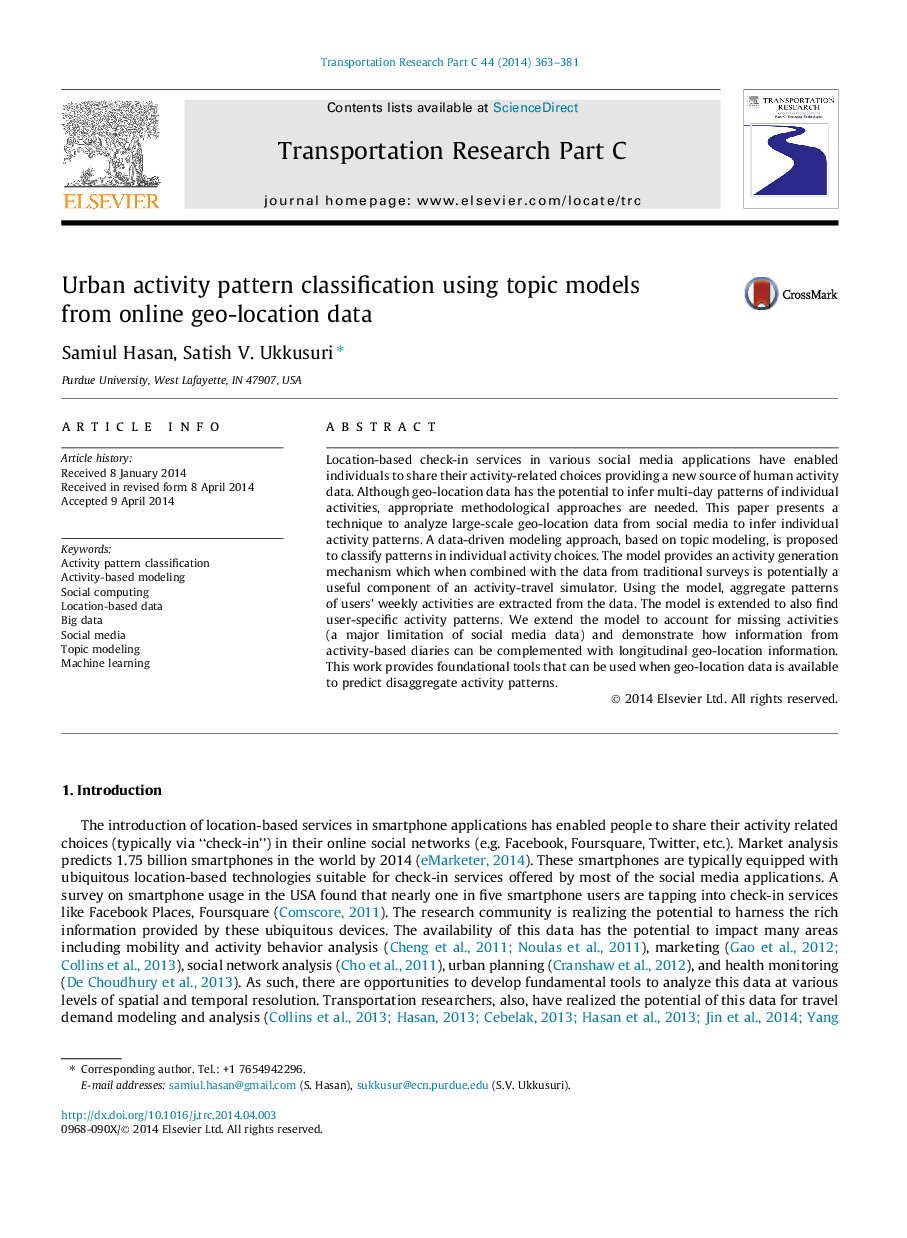| Article ID | Journal | Published Year | Pages | File Type |
|---|---|---|---|---|
| 524805 | Transportation Research Part C: Emerging Technologies | 2014 | 19 Pages |
•Geo-location data from social media has potential for activity-travel analysis.•Identifies the limitations of geo-location data for activity-based modeling.•Adopts a data-driven approach (topic model) for activity pattern classification.•Extends the topic model to capture user-specific activity patterns.•Extends to account for missing activities – a major issue of social media data.
Location-based check-in services in various social media applications have enabled individuals to share their activity-related choices providing a new source of human activity data. Although geo-location data has the potential to infer multi-day patterns of individual activities, appropriate methodological approaches are needed. This paper presents a technique to analyze large-scale geo-location data from social media to infer individual activity patterns. A data-driven modeling approach, based on topic modeling, is proposed to classify patterns in individual activity choices. The model provides an activity generation mechanism which when combined with the data from traditional surveys is potentially a useful component of an activity-travel simulator. Using the model, aggregate patterns of users’ weekly activities are extracted from the data. The model is extended to also find user-specific activity patterns. We extend the model to account for missing activities (a major limitation of social media data) and demonstrate how information from activity-based diaries can be complemented with longitudinal geo-location information. This work provides foundational tools that can be used when geo-location data is available to predict disaggregate activity patterns.
